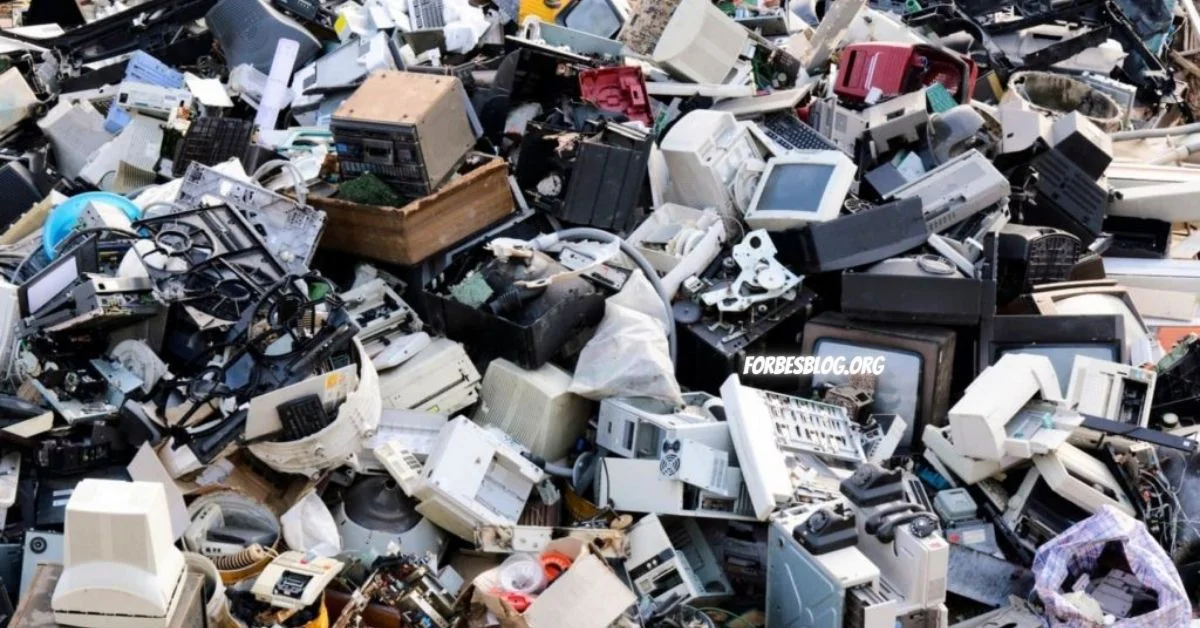In an increasingly digital world, electronic devices have become an integral part of our lives. From smartphones to laptops, these gadgets bring convenience and connectivity to our fingertips. However, as electronic devices become more ubiquitous, the issue of electronics waste (e-waste) has grown into a global concern. It’s crucial to educate our children about the importance of responsible electronics waste disposal to ensure a sustainable future for our planet. One organization that stands out as a leader in the proper management of e-waste is R2 Recycling in Silver Spring, MD. In this article, we will explore the significance of teaching children about e-waste and how organizations like R2 Recycling are making a difference.
Table of Contents
Understanding E-Waste
Electronics waste refers to discarded electronic devices and equipment: this includes any items that are powered by batteries or electricity. E-waste is a growing concern for several reasons. First, the rapid pace of technological advancement leads to shorter lifespans for devices – this is especially the case with laptop & desktop computers, televisions, & smartphones. Second, improper disposal practices, like dumping e-waste in landfills or incinerating it, release harmful toxins into the atmosphere, posing significant risks to public health and the planet.
Teaching Kids About E-Waste
Start with the Basics: Begin by explaining to children what e-waste is and why proper recycling is imperative. Use age-appropriate language and examples to help them grasp the concept. For instance, you can compare e-waste to other forms of waste, such as plastic bottles or food packaging.
Environmental Impact: Emphasize the environmental impact of e-waste. Explain how toxic substances like lead, mercury, and cadmium found in electronic devices can seep into the soil and water, causing harm to all forms of life. Visuals or stories can be a useful learning tool in helping to get this point across.
Resource Depletion: Discuss the resources used in manufacturing electronic devices, like metals and glass. Be sure to pass the message on that recycling e-waste can help conserve these resources and reduce the need for mining, which can be harmful to ecosystems.
The 3 R’s: Reinforce the importance of the three Rs (Reduce, Reuse, Recycle) when it comes to electronics. Encourage the young people in our lives to use properly functioning devices for as long as possible, reuse or repurpose old gadgets, and recycle them when they’ve reached the end of their useful lives.
Proper Disposal: Teach children the correct methods of disposing of electronics waste, such as recycling centers and designated drop-off areas. Explain the significance of choosing responsible disposal methods over simply throwing e-waste in the standard waste stream (which is often illegal).
R2 Recycling: A Leader in Responsible E-Waste Recycling
One organization that exemplifies responsible e-waste recycling is R2 Recycling. R2 was established when the internet became a household fixture, and they have provided recycling & data destruction services for over two decades. Here’s how R2 stands out in ensuring the proper disposal of electronics waste:
Environmental Commitment: An electronics waste recycler with the experience of R2 Recycling is committed to protecting the environment. They adhere to strict guidelines to minimize the environmental impact of e-waste recycling, ensuring that hazardous materials are handled safely & responsibly.
Data Security: In an age of data breaches and privacy concerns, R2 Recycling places a strong emphasis on data security. They ensure that all personal and sensitive data is securely wiped or destroyed from devices before recycling, safeguarding your digital information.
Worker Health and Safety: R2 Recycling prioritizes the health and safety of its workers. They provide proper training and protective equipment to employees to prevent exposure to hazardous materials during the recycling process.
Transparency: Transparency is a hallmark of R2 Recycling. They maintain open communication with their clients and the public, offering clear documentation and reporting on their recycling practices.
Global Impact: R2 Recycling is committed to doing its part to reduce the impact of e-waste worldwide. Helping to take the lead on a widespread scale sets a precedent followed by others around the country and the planet as a whole.
Teaching Kids the R2 Way
When teaching children about responsible e-waste disposal, you can use R2 Recycling as an example of how organizations take concrete steps to protect our planet. Share examples that underscore the importance of environmental conservation & data security to help emphasize the importance of recycling. This can help children understand that there are dedicated efforts to address the e-waste problem and inspire them to make responsible choices.
Teaching our children the importance of preserving the long-term health of our planet by properly disposing of electronics waste is essential for a sustainable future. E-waste poses significant environmental and health risks, and it’s our responsibility to mitigate these threats. Organizations like R2 Recycling in Silver Spring, MD play a vital role in setting the standard for responsible e-waste disposal, and by educating our children about their efforts, we can inspire the next generation to protect our planet and make environmentally conscious choices in their everyday lives. Through knowledge and action, we can ensure that our digital age remains a sustainable one for generations to come.














